Kicking Off Season One of Pretend You’re Good At It: ADHD and Imposter Syndrome
A four-part series on how a midlife ADHD diagnosis helped me move on from decades of feeling like a career failure.
Listen as you read (I listened as I wrote):
Burn that costume that we once wore
And head to the place where the dreams begin
Got your backpack open that back door
Hi, it’s me.
You know what I’m excited about? September 21st will be my two-year ‘stackiversary! After a soft launch in August 2022 to practice and get to know the platform, I officially launched this newsletter on my 51st birthday.1
I was unemployed at the time and needed a project to focus on, similar to previous bouts of unemployment when I did things like start a YouTube channel (now defunct) and make a personal website.
After six months of freelancing and looking for work, I was finally offered a job right before the holidays and started in January 2023. Knowing I would soon have a real job and be unable to pretend my newsletter was a job, I wondered if I would be able to keep up the weekly pace. I’m not gonna lie, it’s been challenging.
One of my writing goals for this newsletter was to practice discipline—to keep a schedule and create a structure that will help me build a writing habit.2 This became especially important after getting an ADHD diagnosis late in 2023 at age 52. I just need a routine! I thought. I kept telling myself that maintaining a weekly pace was an important part of being accepted into the WRITER category of the World Manual of Belonging.
Friend, here is something I’ve learned, and I’ll pass the lesson on to you:
Never do something just to belong. You do you, and you’ll find your people.
A few weeks ago I attended a live Zoom workshop with of The Editing Spectrum.
I highly recommend becoming a paid subscriber to her newsletter if your vibe is a little outside the box of traditional online publishing practices. After years of frustration trying unsuccessfully to fit within the staged confines of market-y SEO content planning, Amanda’s focus on instinct and heart-forward content planning has changed my relationship to writing online.
During the Q+A portion of the workshop, I asked this question in the chat:
"I'm struggling with allowing flexibility because one of my writing goals is to practice discipline and follow a plan. As an ADHD person, I need this structure to keep me on track. However, I don't always have the energy to keep up a weekly pace."
Amanda’s response3 was kind, insightful, and pressed on something hidden deep within me, far beyond my writing practice alone. Sure, establishing a writing discipline was my goal, but Amanda’s reframing of the word discipline broke something loose in me. She said, in part:
My instinct here is to actually share that maybe a more expansive way to think about discipline is that it isn't punishment. Discipline is returning to the thing which you value, and we have unlimited invitations to return to the thing that we value. Over time, at least in my experience, how I make my way through the world may not look structured, but my heart is disciplined and aligned to what nourishes it.
From my observations of you, Jen, you actually are deeply disciplined in the things that you value, in how you tend to your family, and in how you listen to a story. I would just offer that you can lift the expectation to publish weekly. Set that aside and instead maybe give yourself permission to just do one essay, one conversation starter, or just one conversation starter.
What a gift. Thank you, Amanda.
This immediately took me back to time spent in faith communities ruled by strict formulas of engagement, like mandates to start every day with devotional prayer and Bible reading to discipline hearts and minds.
There’s that word again: discipline.
Apparently this mindset had creeped into every fabric of my values, even outside of my faith experience.
In the days following the workshop, I meditated on Amanda’s response through the lens of my job, my family commitments, and through my ADHD diagnosis, and I realized: I am disciplined. I’m deeply committed to sharing stories about fear, flailing, and figuring it out, to opening myself up and inviting you in. I don’t often meander away from this mission, regardless of how often or on what day I publish.
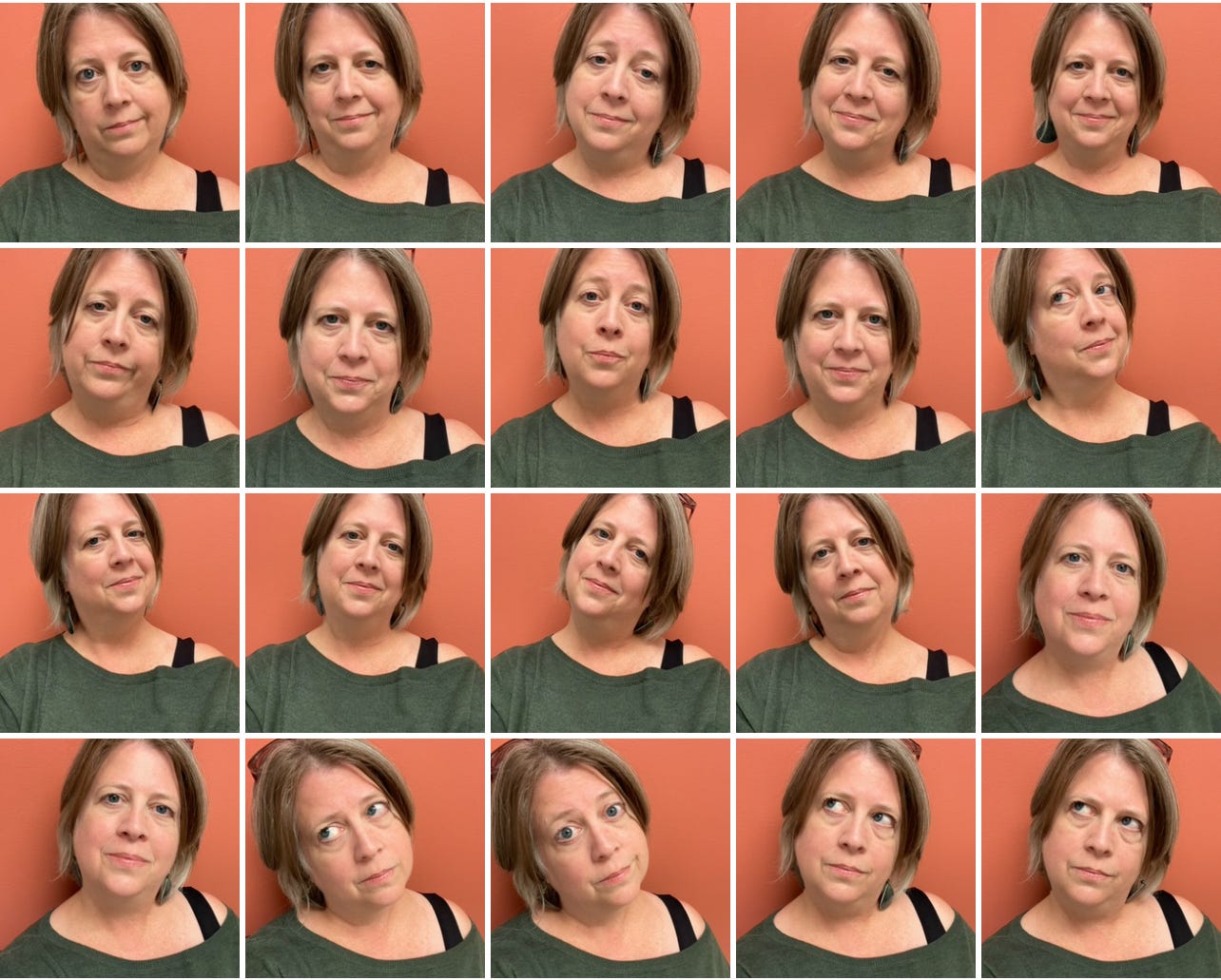
So I'm changing things up a little by experimenting with writing seasons–like a television show!
I took a publishing break through most of July and August to fully immerse myself in writing one long thought that can be chunked into a series of posts—a structure I believe will honor my time constraints, energy levels, and my brain’s need for dopamine-fueled, hyper-focused writing binges.
Amanda talks in her newsletter about building trust with our readers. I see now that your trust in me doesn’t come from my showing up in your inbox every Wednesday morning by 7am, but in showing up as my authentic self every time you see me.
I hope this personal reframing results in a happier Jen, a confident Jen, and a higher quality of storytelling that you’ll connect with more deeply.
Thanks for being here through all the iterations of this space. Gold stars all around! ✨
Until next time,
Jen
Coming up on season one of Pretend You’re Good At It:
A four-part series on how a midlife ADHD diagnosis helped me move on from decades of feeling like a career failure.
⭐️ Next week I’ll share a story about the time someone called me a “thought leader,” which of course was like throwing a can of gasoline into the bonfire of my Imposter Syndrome Forest during a summer drought.
⭐️ September 18: My sad backstory—don’t all heroes and villains have one?! How a recent ADHD diagnosis helped me overcome a lifetime of fraudy feelings.
⭐️ September 25: A community forum where readers can respond to one another’s questions and share insights about ADHD symptoms, diagnoses, and medication journeys in a special Ask Me Anything About ADHD post. I’ll also share my own experience.
⭐️ October 2: Discovering a language around my life’s work and realizing how everything I’ve ever done has instinctively orbited around one North Star, even in my chaotic ADHDness. In other words, I’m not as undisciplined as I thought!
If you know someone interested in these topics, please help them find me.
You can forward this email, “restack” to the Notes app, or share the online link. Here are some sharing prompts to get you started:
“I thought of you when I read this. I think you’ll like what Jen has to say about…”
“Excited for Jen’s new series on ADHD and Imposter Syndrome! I hope she writes about…”
“I really connected with Jen’s story here, especially the part about…”
Subscribe to get the whole series delivered to your inbox:
A quick poll before you go:
I know what the Substack statistics tell me on the back end, but since you’re the one actually showing up here, I’m curious about how you read my newsletter.
What’s happening in my garden this week:
My shishito peppers are going bonkers right now. We enjoy them broiled and blistered in sesame oil and salt.
I picked five gallons of apples off our espalier tree and spent Saturday prepping and canning apple pie filling for the winter. Out of six quarts, one didn’t seal, so…. shucks! I guess we’re eating apple pie this week!
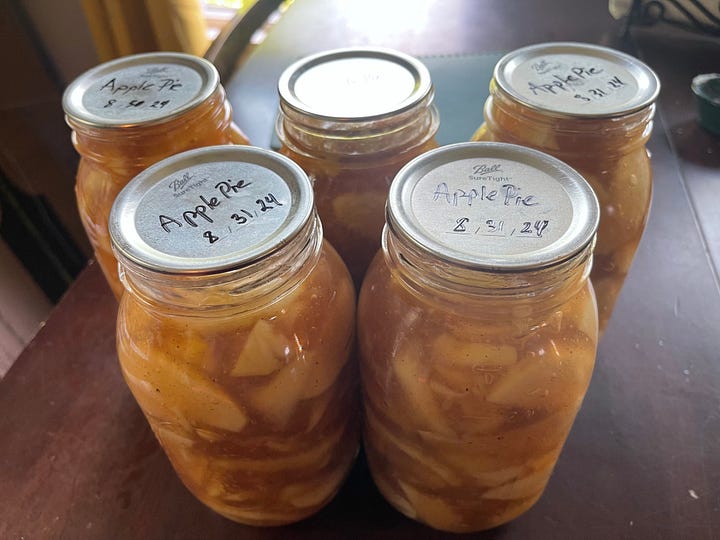
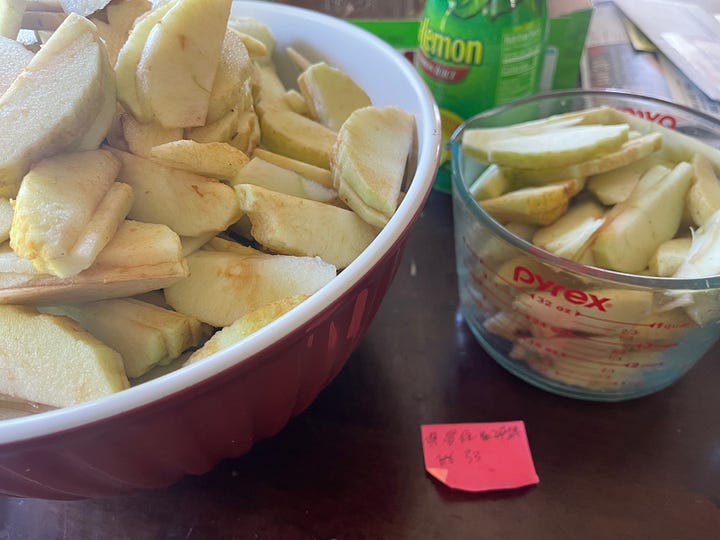
Read more about my tradition of starting new things on my birthday:
Read about my goals and Substack Origin Story here:
Amanda captured my question and her response in a video and transcript here:




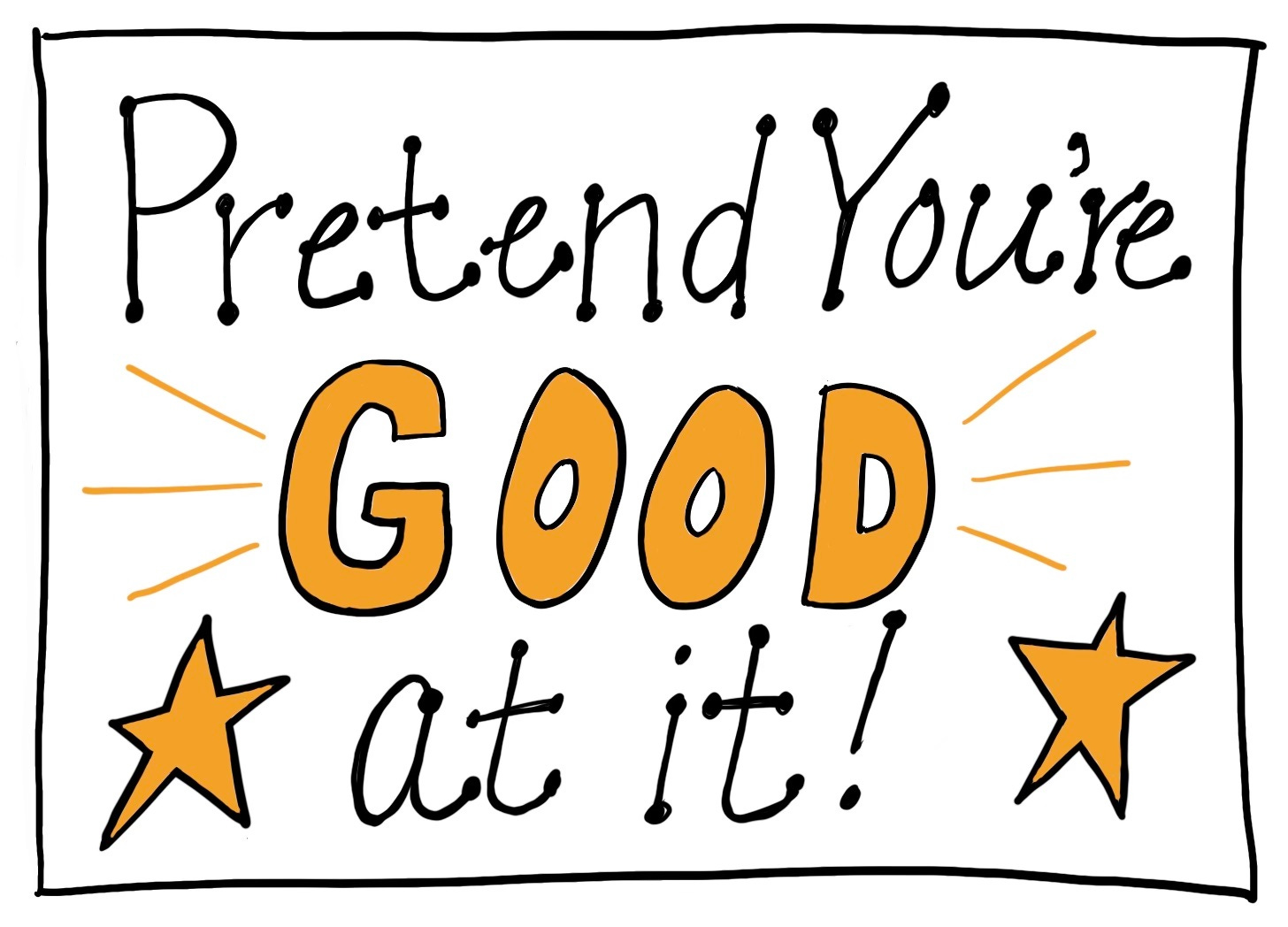
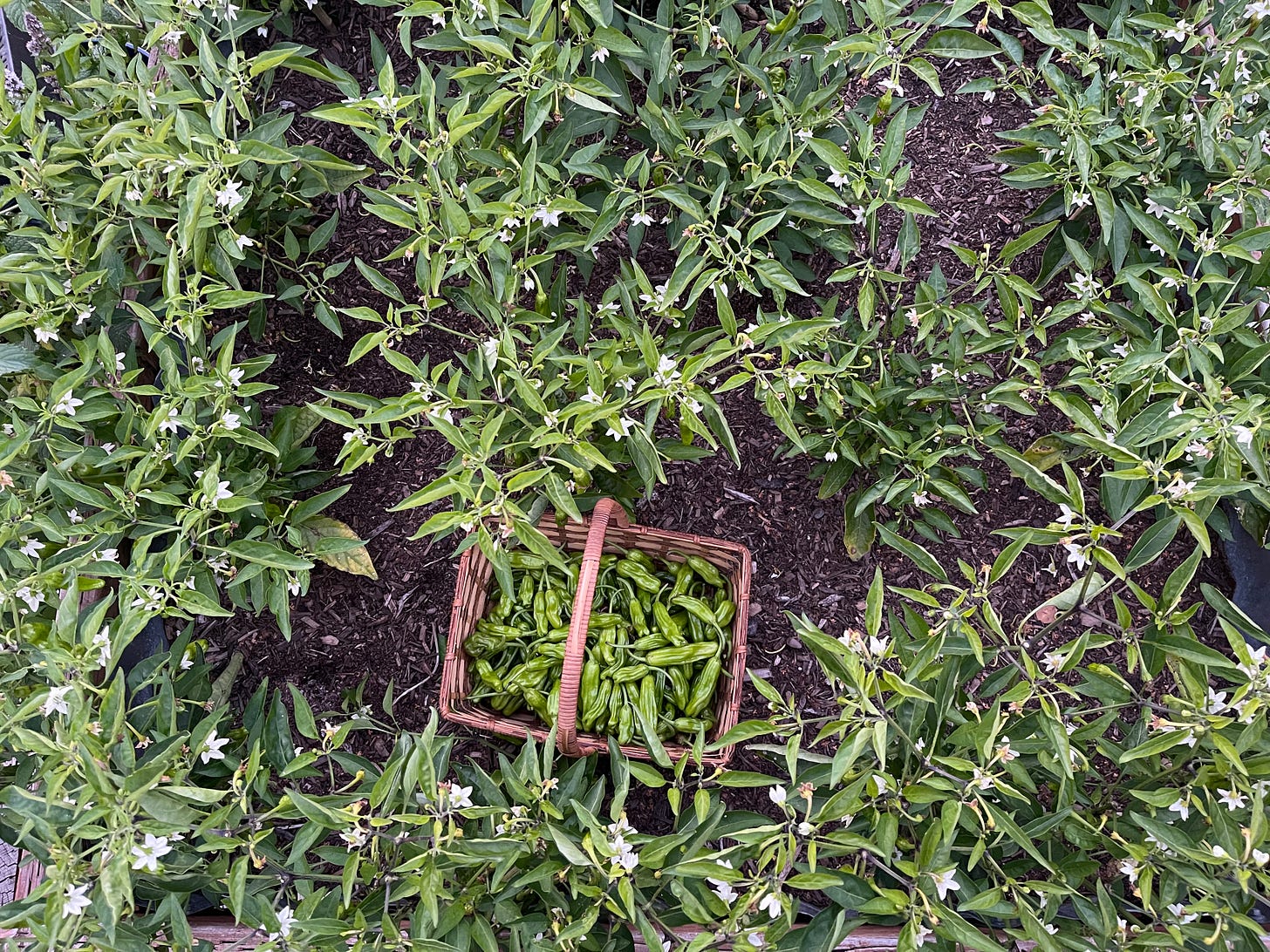



So relatable and I appreciate the reframe of discipline as NOT punishment. I’ve struggled with self perception around the word “lazy” as a child when I was overwhelmed by school even though as a middle schooler and high schooler I got nearly perfect grades. It was constant burn out which has stayed with me as a way of working and “discipline” - discipline is showing up for the things you value even on the days you don’t want to (butchering a Julius Erving quote but you get it) Looking forward to seeing this series unfold.
I think I needed to hear this today. I always flex for freedom and unstructured planning, and discipline does often feel like punishment (perhaps because of language around it within churches during my growing up years? Because "just be disciplined" was a common solution to any ill in my family?). When I do engage in commitment to a regular "practice" (which is my preferred word instead of discipline), I find I sometimes have more freedom, but it often feels counterintuitive. Thanks for writing, Jen! I like the idea of seasonal work, too, it always helps me to have an end in view.